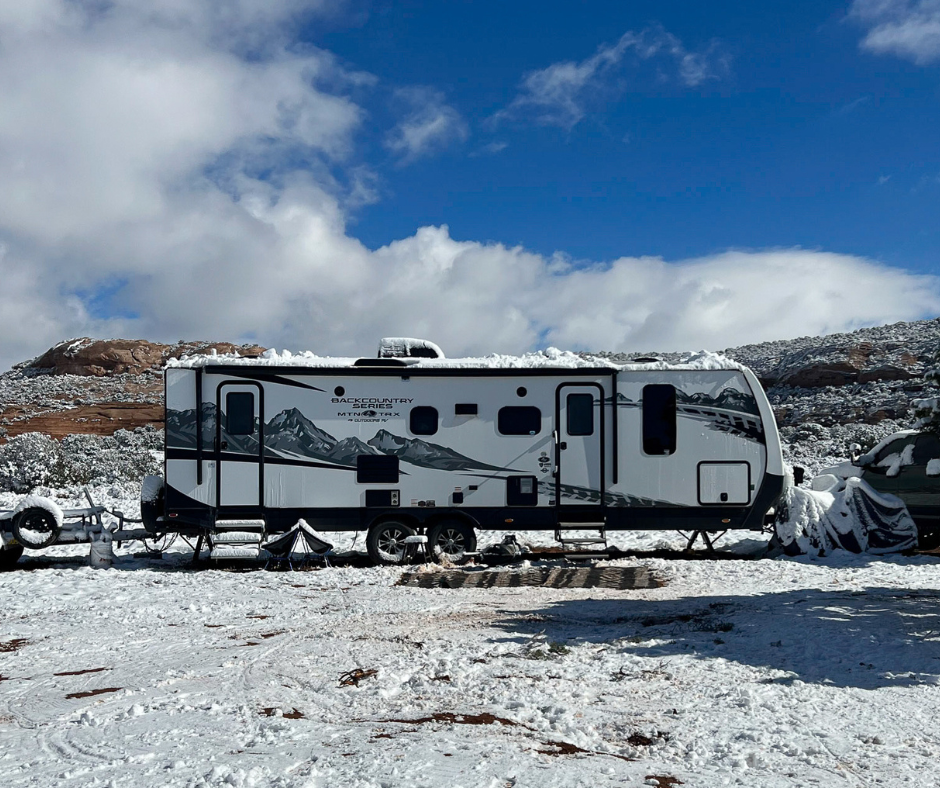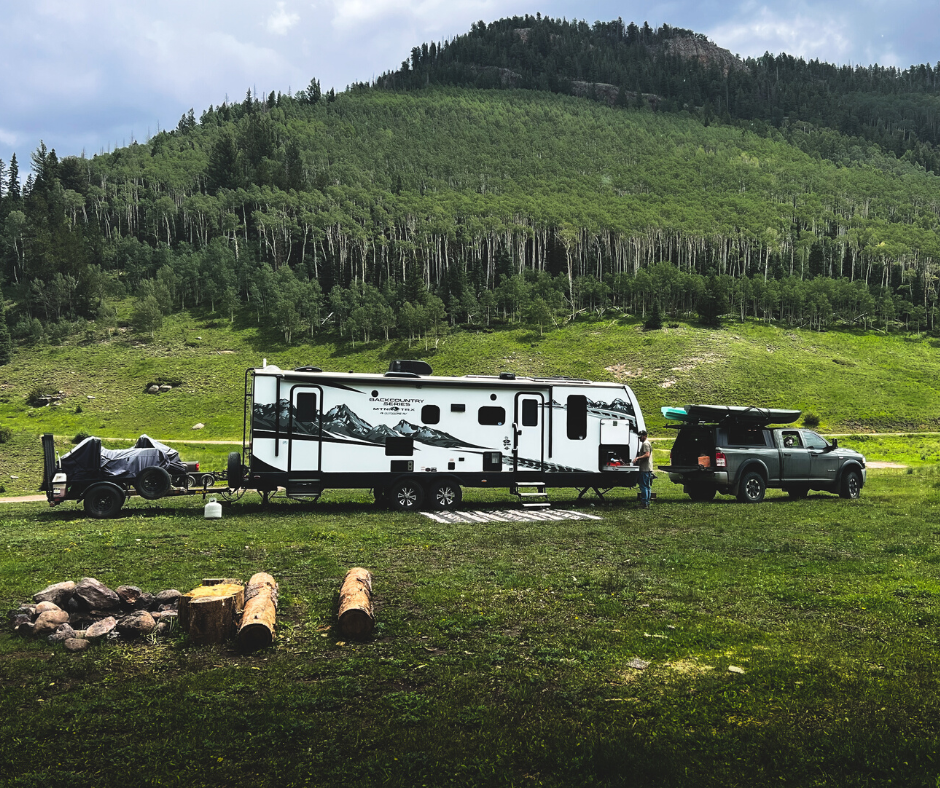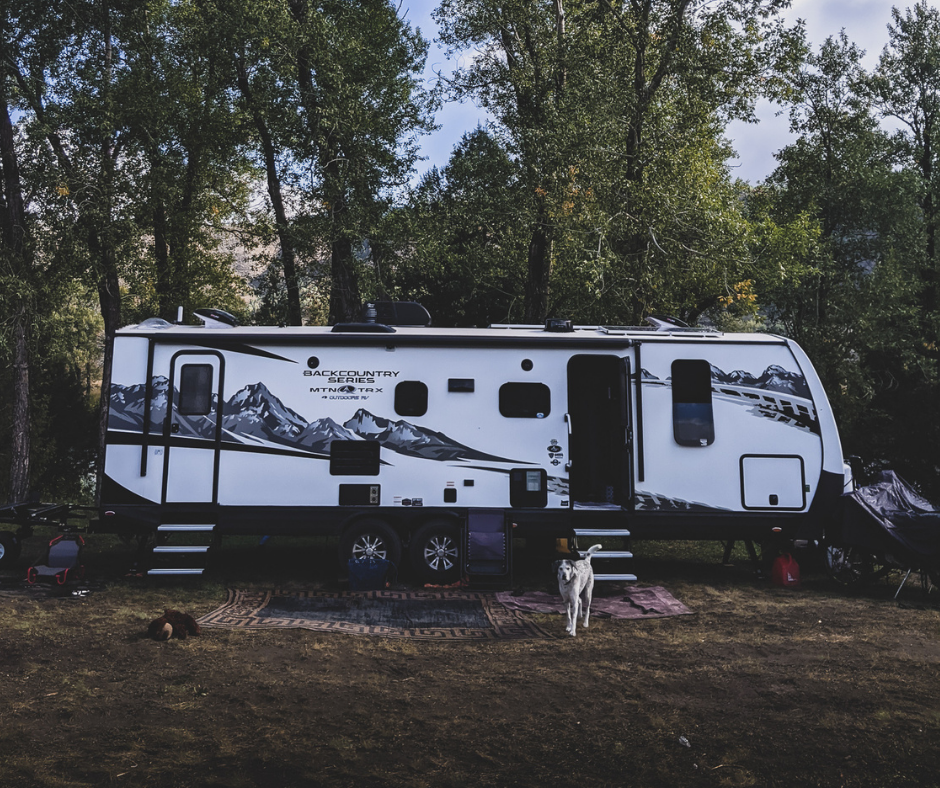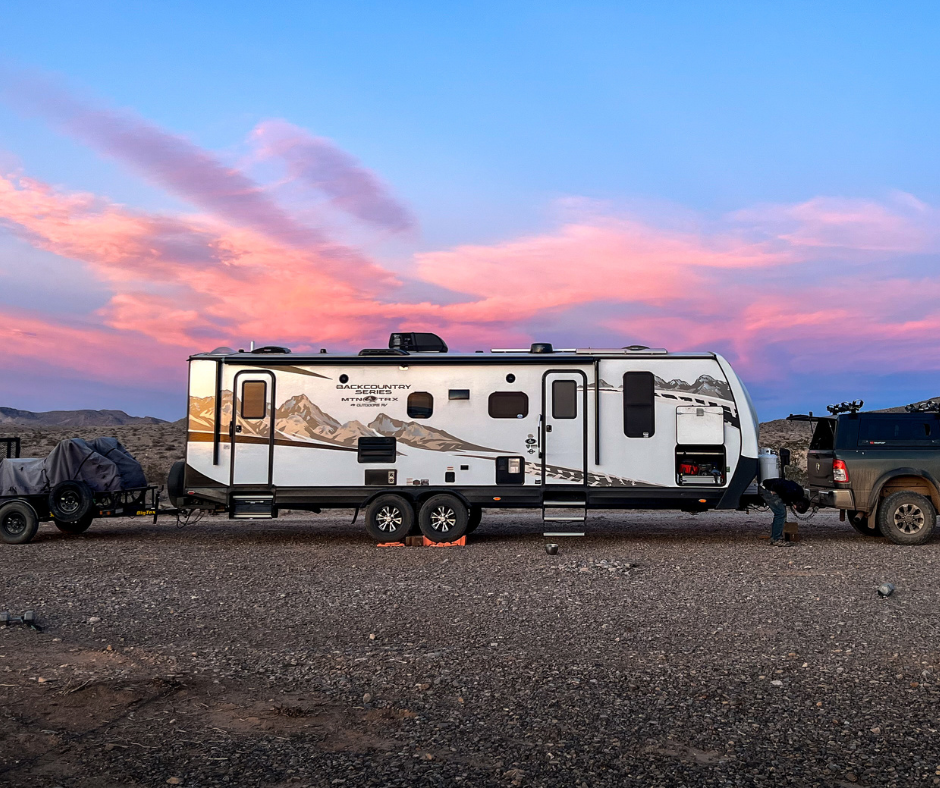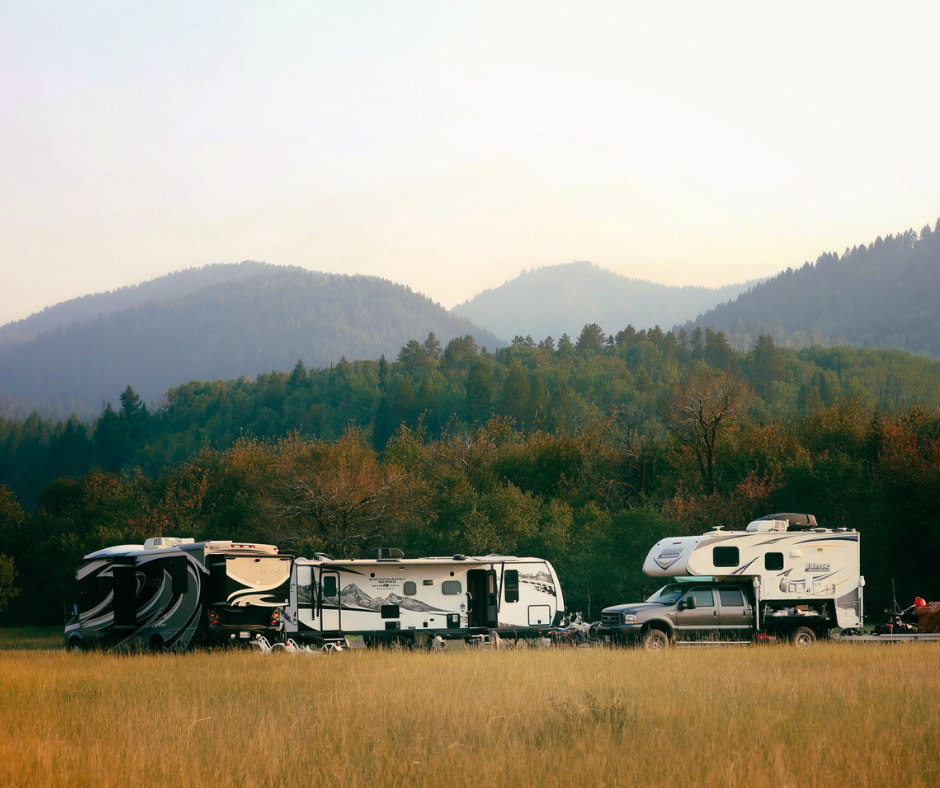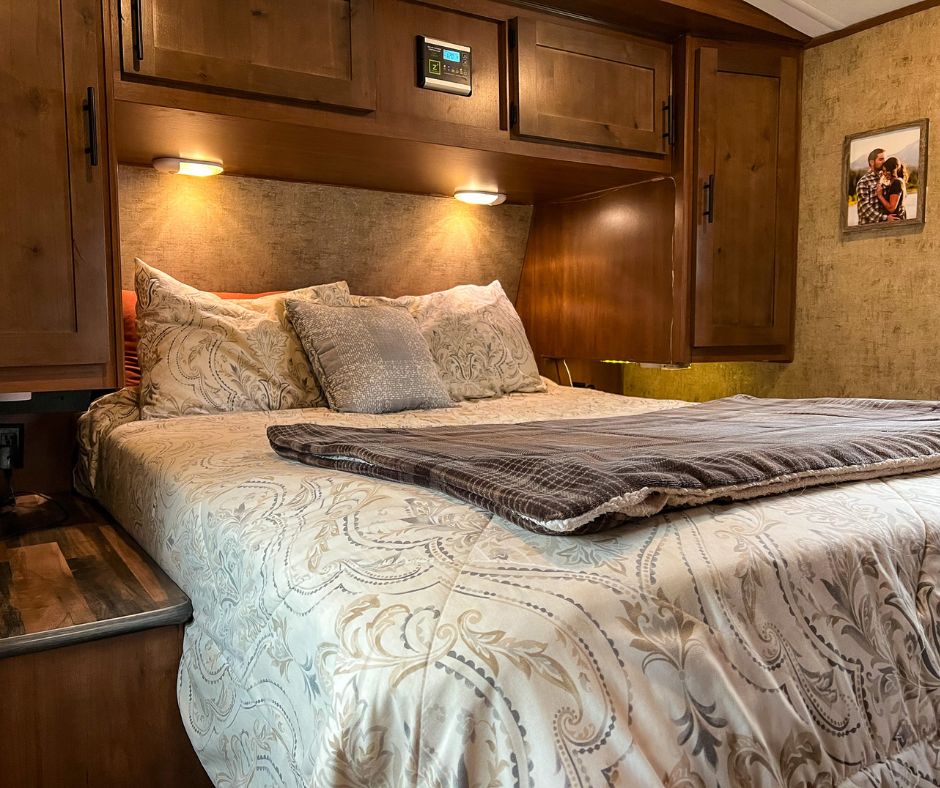A Full-Time RVers Guide to Picking the Perfect RV to Live In
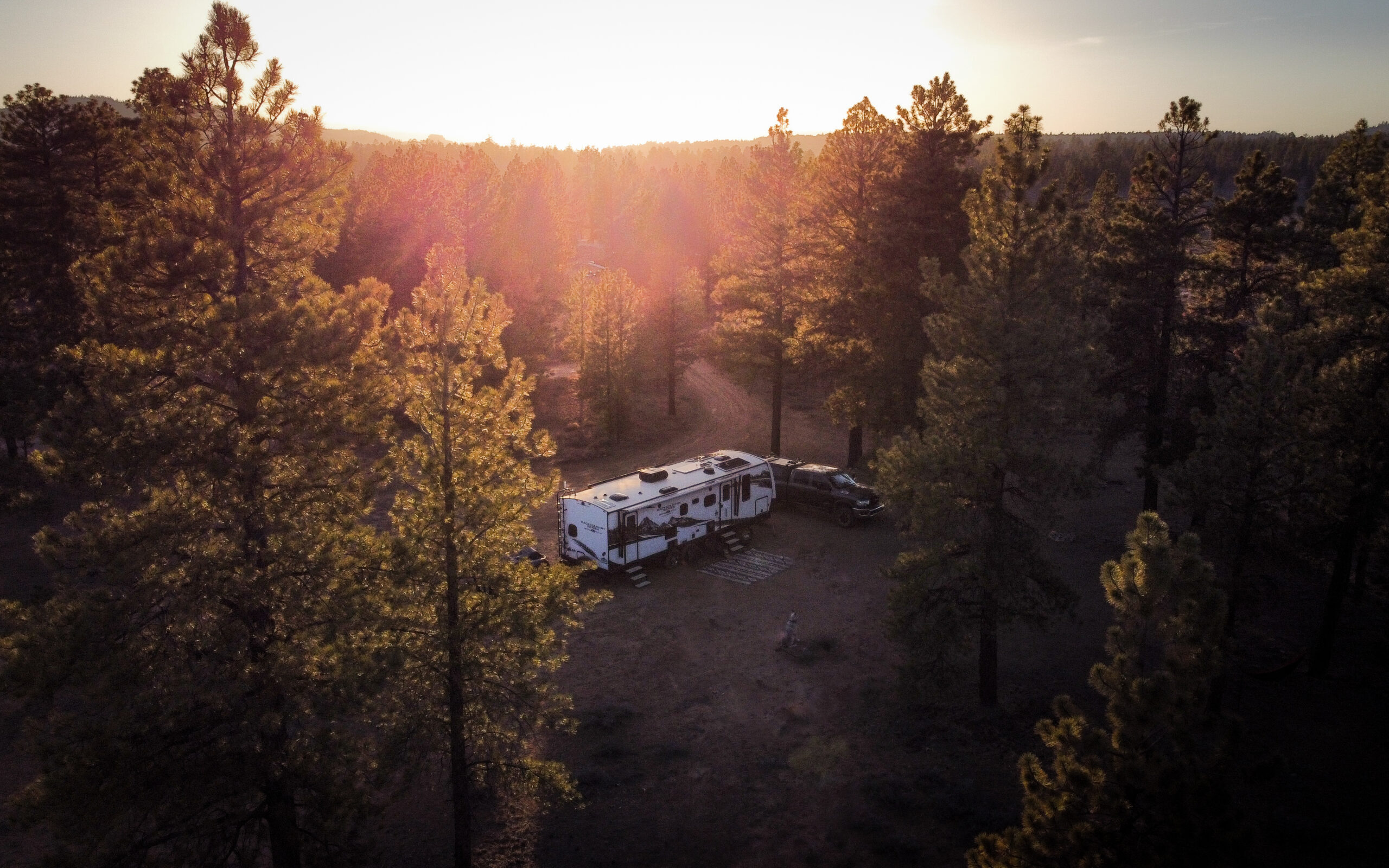
Table of Contents
ToggleThings You Need to Know About Finding the Perfect RV to Live In
If you’re planning to hit the open road and live full-time in an RV, there are some important things you need to know before buying one. It can be tempting to focus on the fun aspects of owning an RV, like taking spontaneous trips and having access to beautiful nature spots. But it’s important to keep in mind that buying an RV is a big commitment—you’ll be living in it, after all. Here’s what you need to consider when trying to find your perfect home away from home.
What type of RV do you want to live in?
There are many different types of RVs available, from smaller campers and pull-behinds to large motorhomes and fifth wheels. Consider which type best suits your needs and budget before making a purchase decision.
Let’s break down the different types of RVs and their pros and cons so that you can make an informed decision.
Truck Campers
Truck campers are ideal for those who want to travel light but still have a comfortable living space. They are mounted onto the bed of a pickup truck and have all the amenities of a regular camper (kitchenette, toilet, sleeping space).
Living in a truck camper has many advantages and some disadvantages that should be weighed carefully before making the decision to commit to the lifestyle. On the positive side, a truck camper gives you the freedom of being able to take your home with you wherever you go. They are easier to drive over difficult terrain than larger recreational vehicles, making them an excellent choice for those who plan on frequently moving around.
However, it’s important to note that since space is limited in a truck camper, having enough storage may prove challenging and additional living comforts like skylights or extra seating are not easily implemented in this type of RV.
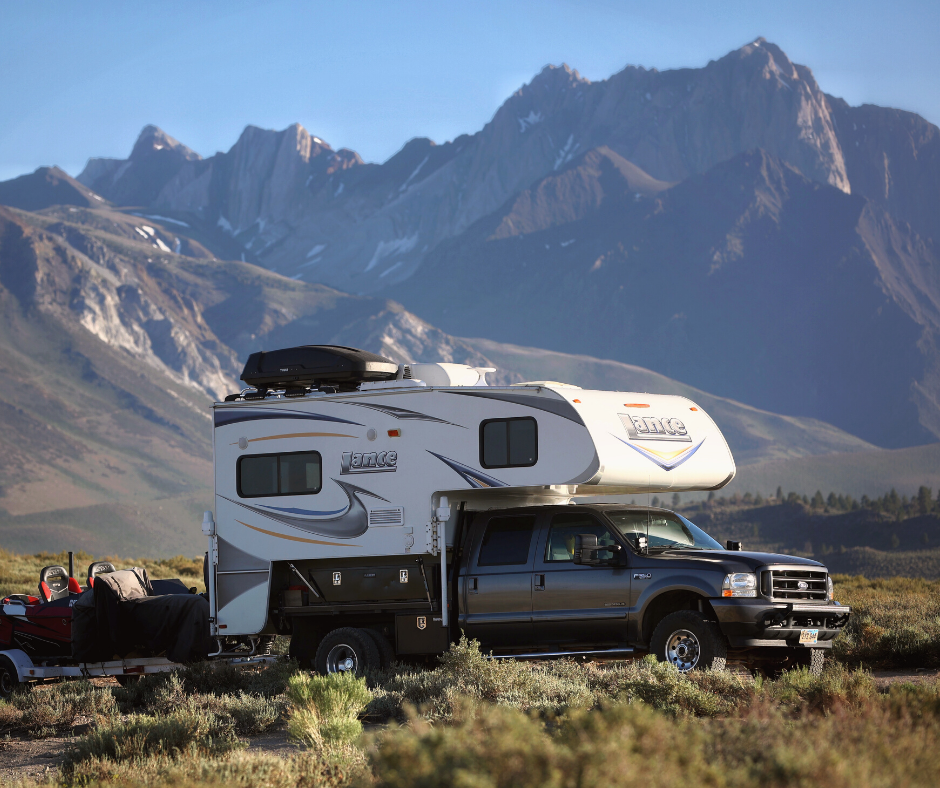
Pull-Behinds (Travel Trailers & Fifth Wheels)
Pull-behinds are designed to be towed behind another vehicle using a hitch ball mount. Pull-behinds come in two categories: travel trailers and fifth wheels. Living full time in one of these RVs gives you the chance to explore the world in a comfortable way, making it an especially attractive option for families and retirees. Moreover, the ease of pull-behinds and fifth wheelers are ideal for long stays as they provide storage space, kitchens, showers and on board bathrooms—with many floor plan configurations to best serve your needs.
While pull-behinds come with their own advantages, there are some cons too: parking could be a challenge in some locations; maintenance can become costly; and sturdy materials may be required due to frequent movement across different terrains. However, with proper planning you can live very comfortably in pull-behind travel trailer or fifth wheel RV full time.
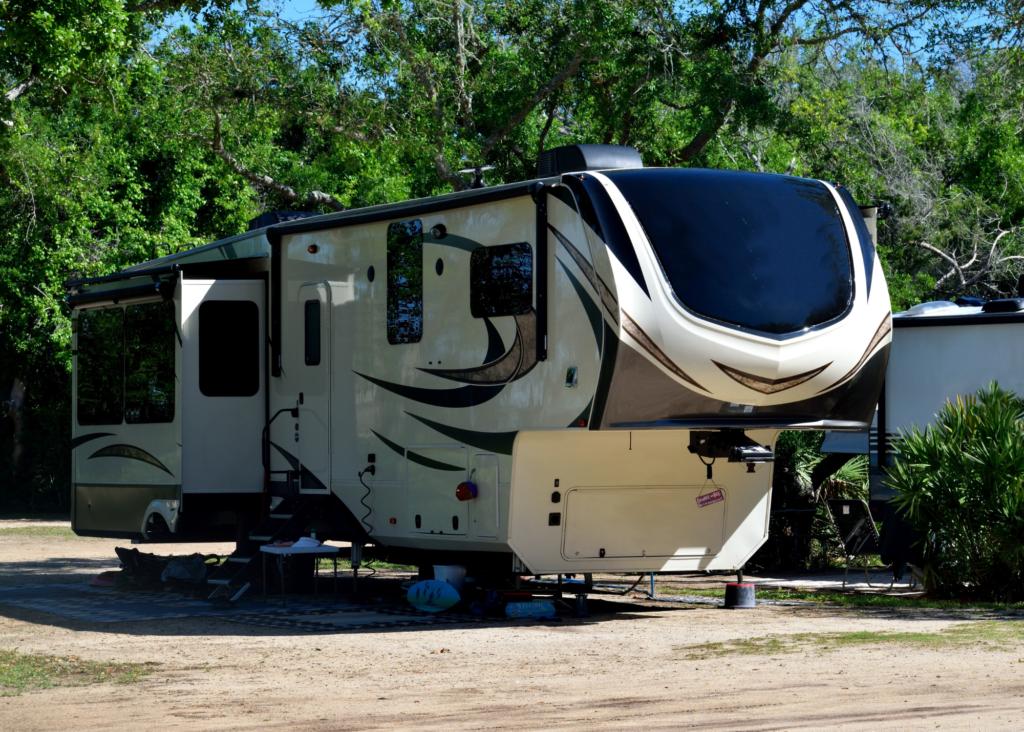
Motorhomes (Class A, Class B & Class C)
Motorhomes are self-contained homes on wheels that offer complete convenience when it comes to traveling from place to place.
Motorhomes come in three classes –Class A, Class B,and Class C. Class A motor homes offer unbeatable luxury and comfort with all the amenities you will find at home. However, they are also more expensive to purchase and operate than a Class B or C. If it’s just you and your spouse looking for an adventure, you might want to go with a smaller Class B option where living quarters are reduced but still comfortable. Meanwhile, Class C tends to be a balance between both larger and small styles built with a cabin chassis.
Motorhomes offer added stability when driving compared to other types of RVs but keep in mind that motorhomes do not have high ground clearance like other types of RVs.
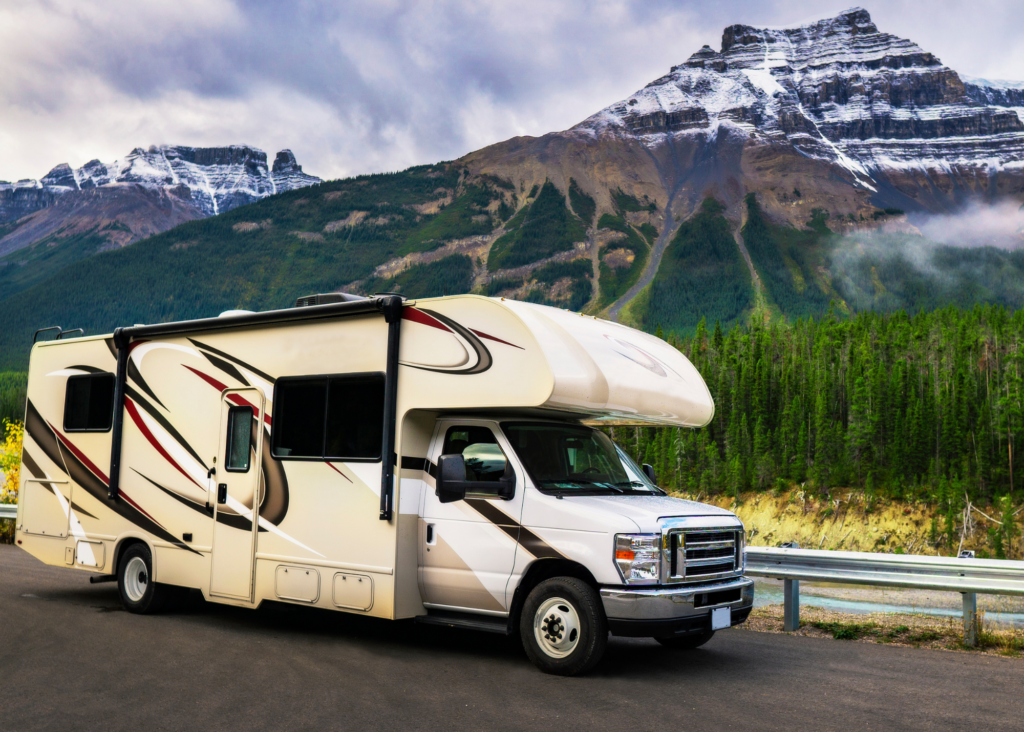
Budget
Before you start browsing RVs, take a look at your budget and decide how much money you can realistically spend on your new home. Consider not only the initial purchase price but also ongoing costs such as insurance, fuel, and maintenance fees. Once you have a budget in mind, you can narrow down your search for RVs that fit within your price range.
Size Matters
The size of the vehicle you choose will depend on how many people will be living with you and what type of amenities are important. Do you want lots of room for clothes and supplies? Will you need space for guests? Do you want a large kitchen? Ask yourself these questions before narrowing down your options by size. You might even want to make a list of all the features that are must-haves so that when shopping around for RVs, you can easily compare models side by side.
The Tow Vehicle
Your tow vehicle needs to be powerful enough to tow your RV safely and effectively through all kinds of terrain. It also needs to have enough space to store supplies while you’re traveling. Meaning, you may need a pickup truck or even a large SUV such as a Suburban or Yukon XL in order to accommodate both your family and your possessions. Additionally, if you plan on taking long trips with your RV, you might consider a diesel engine for more power and better fuel economy.
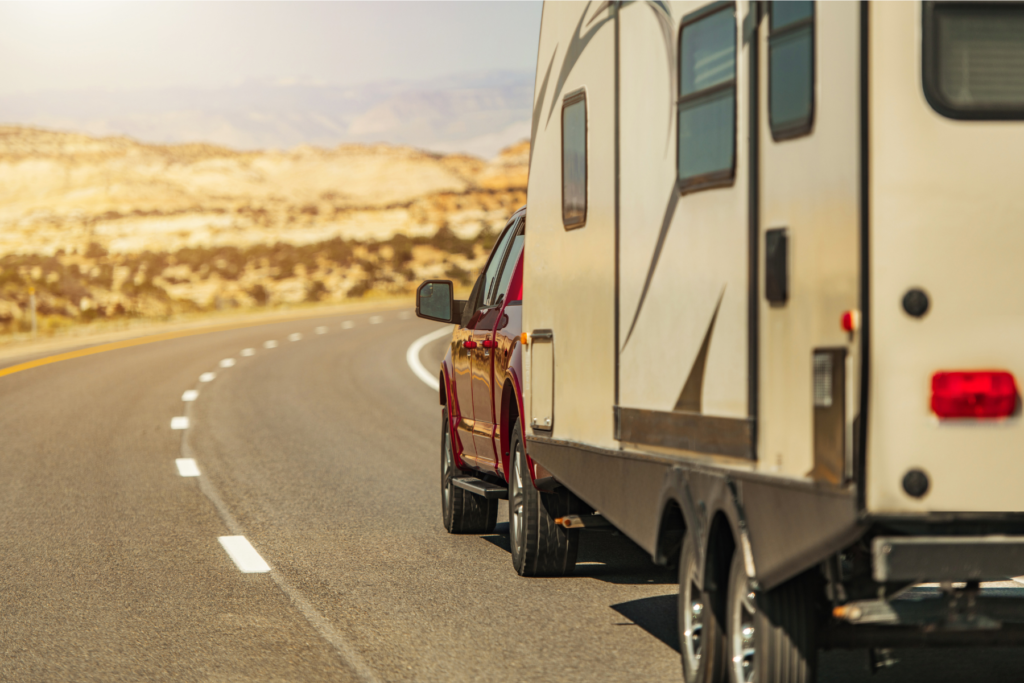
Floor Plan
The floor plan of your RV will depend largely on how many people will be living in the space. Are you living solo? With two people? Or maybe with a family? How many pets? Consider how much space everyone will need and what features are important to you (e.g., separate bedroom, large kitchen/dining area). Once you decide on the size and floor plan that fits your individual needs, it’s time to move onto figuring out amenities.
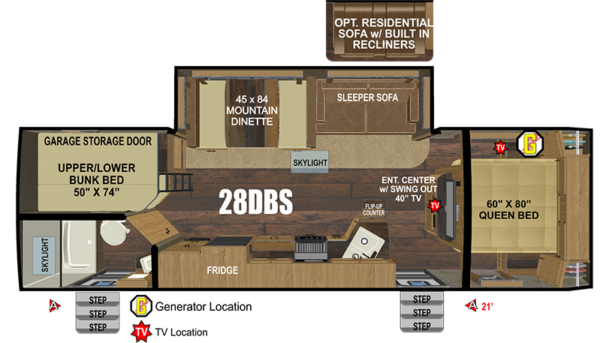
Amenities
When it comes to amenities, think about what matters most to you. Do you want a lot of storage space? How important is air conditioning or heating? Are heated water tanks necessary for cold weather camping? And don’t forget about technology—what kind of TV do you need and do you want Wi-Fi access if needed? Make sure these amenities are included in whatever type of RV model or make that catches your eye.
RV Park vs Boondocking
Do some research into the types of places where you would like to stay while living in your new home away from home. Some folks prefer traditional RV parks with all the bells and whistles while others prefer less conventional “boondocking” spots where they can get away from it all without having any electricity or water hookups available. It really depends on what type of camping experience appeals most to your personal preferences!
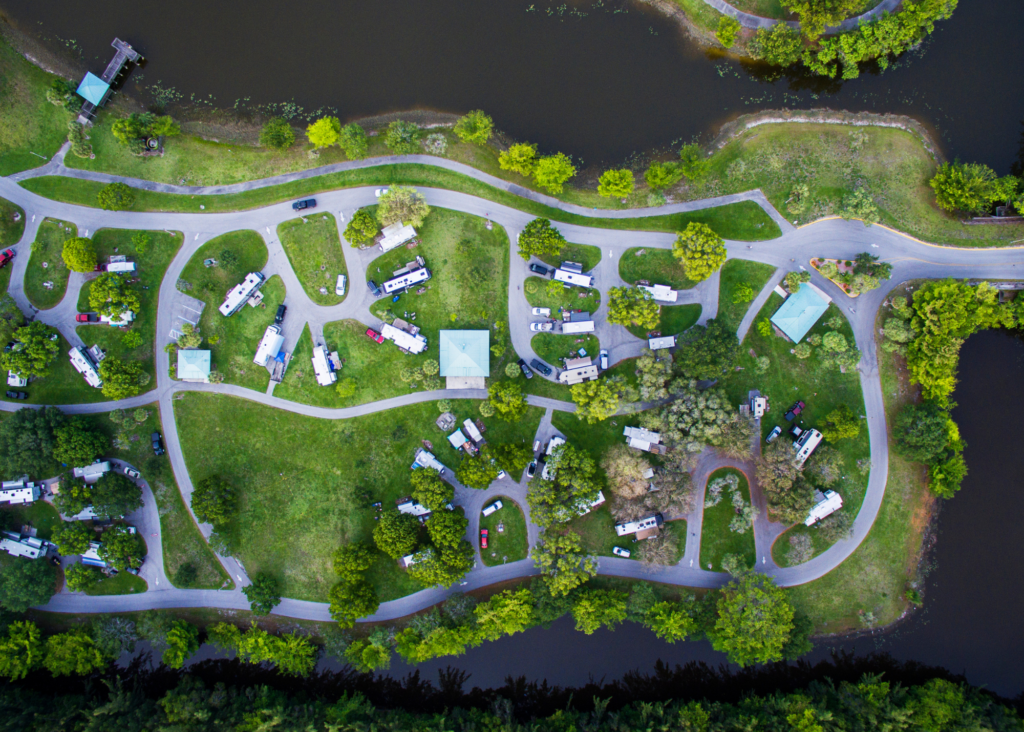
Storage Space
When it comes to finding the perfect RV, storage space is arguably one of the most important factors. After all, if you’re going to live in your RV full-time or even just for extended trips, you’ll need enough room to store all of your belongings. When looking at RVs, pay attention to how much storage space each has as well as what type of storage is available (such as shelving units or cabinets). If there isn’t enough storage space in an RV that interests you, don’t worry! There are plenty of ways to add additional storage with bins and other organizational tools.
Outdoor Kitchen
Having an outdoor kitchen on your RV is another great feature that can make life easier while traveling. Not only does it provide a convenient place to cook meals outside but it also allows you to entertain friends and enjoy some time outdoors while on the road. Most outdoor kitchens come equipped with a sink, refrigerator/freezer combo, stovetop/oven combo, counter space for food prep. If having an outdoor kitchen is a must—make sure to check out what type of outdoor kitchen each potential RV has before making your purchase decision.
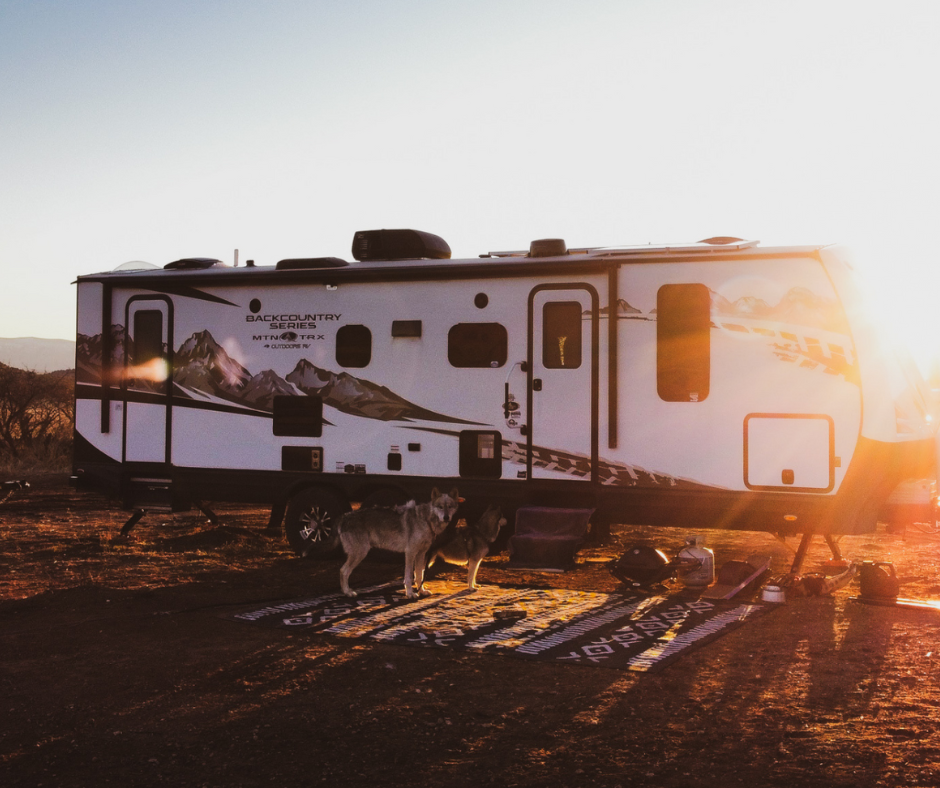
Water Capacity
It goes without saying that having enough water capacity is crucial when living in an RV full-time or for extended periods of time—you don’t want to run out! Check out each potential RV’s fresh water tank size as well as its greywater tank size (the tank where wastewater from sinks and showers goes) before making your purchase decision so that you know exactly how much water will be available while traveling.
Off Grid Power Sources
Most people who live full-time in an RV opt for off-grid power sources such as solar panels or generators rather than relying solely on shore power from campgrounds or other public places. This allows them to be completely self sufficient wherever they go (as long as there is enough sunlight!). Consider if this is something that would benefit your lifestyle.
Weather Considerations
If you’re looking to take on extreme weather conditions while RVing, a four season RV may be just the ticket. Comparatively speaking to non-four season rigs, these travel trailers consist of heavy-duty materials, proper insulation, an enclosed underbelly, and thermal pane windows that can stand up to any kind of climate no matter what time of year. There are many four-season packages available now that provide even more protection, such as heated tanks and foam-insulated walls, so you can camp in comfort without having to worry about whether your rig is designed for it or not.
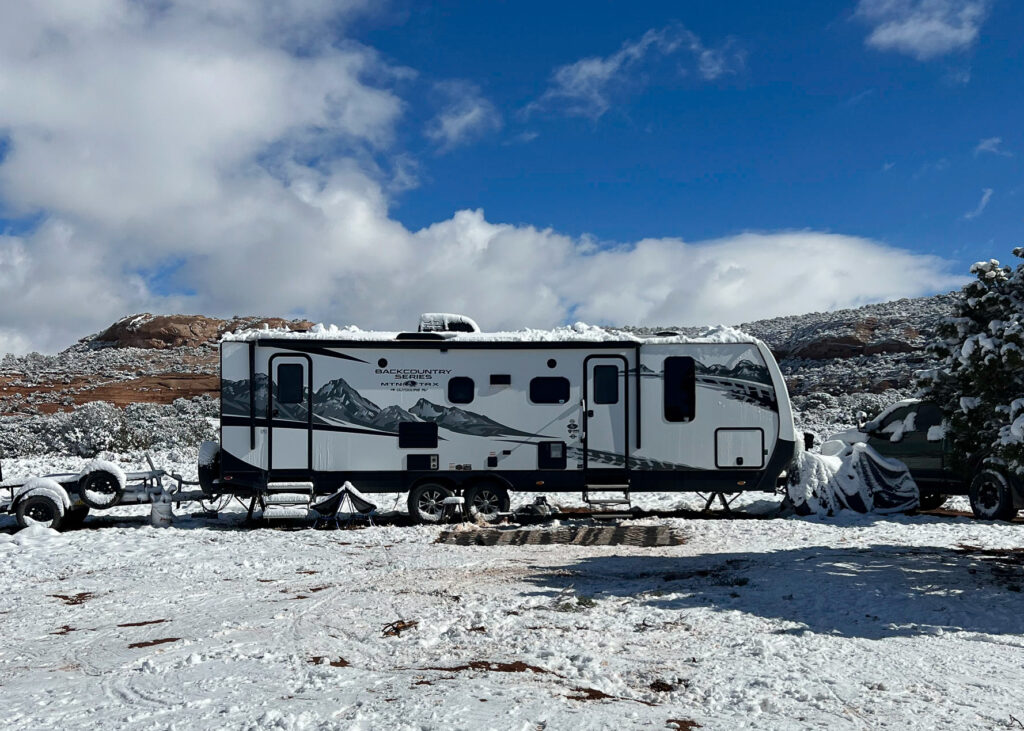
Used vs New Models
Decide whether you want a used model or brand new model when shopping around for RVs. Both used models and new models have their pros and cons but overall it really depends on what is best for your needs and budget.
If buying used, make sure that the unit is still in good condition by inspecting it thoroughly before purchasing it—look out for signs of wear-and-tear such as rust or water damage, especially if the RV has been sitting idle for some time prior to purchase—you don’t want any unexpected surprises down the road.
On the other hand, if buying brand new then make sure that everything is functioning properly before taking possession during delivery day (this includes checking all systems such as plumbing & electrical). This way everything should be working correctly from day one so there won’t be any major issues later down the line due to improper installation during the build process at the factory.
Is there a warranty available?
Warranties vary depending on manufacturer but they can provide peace-of-mind should any unexpected repairs arise after purchase—ask about what kind of warranty comes with each model that peaks your interest so that there aren’t any nasty surprises down the line!
Do I need insurance coverage?
Again, this varies by manufacturer and location, but it’s always worth checking into—insurance can help protect against potential damages or losses due to unforeseen circumstances .
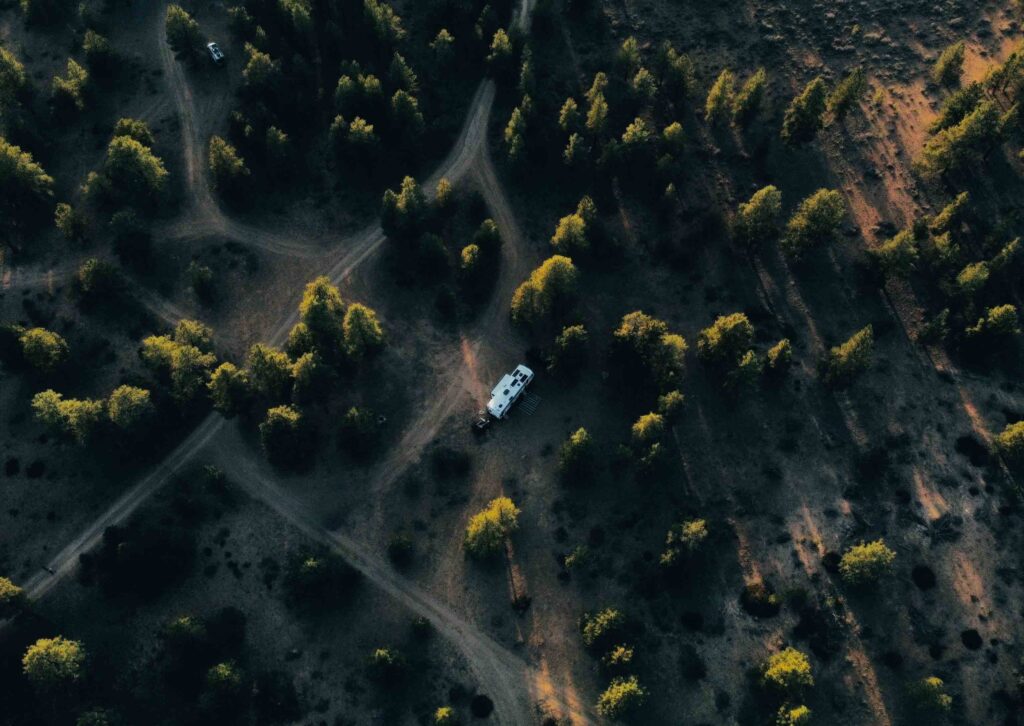
Research Before You Buy
When it comes time to buy an RV, don’t rush into it without doing some research first. Check out reviews from other owners about their experiences with different brands and models before making any decisions. It’s also important to take a good look at any used RVs before committing; if possible, bring along someone who knows something about mechanics so they can help identify any issues that may require costly repairs later on down the line.
Finding the Perfect RV to Live in
If you are looking to find the best four season travel trailer, we explore some of the best options for practical and efficient long-term adventure living! Read our comprehensive guide here: The Best 4 Season Travel Trailers For Full-Time Living
The Bottom Line
Living life on wheels doesn’t just require finding an amazing rig—it requires research! With so many options available across different price ranges plus thousands of features and amenities available within those models, it’s easy to feel overwhelmed during this process but don’t worry—we’ve got you covered! By familiarizing yourself with these tips we hope that choosing the perfect RV becomes easier than ever before ensuring years of unforgettable travels ahead!



